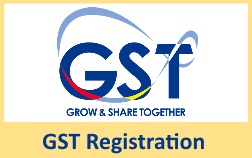Cost effective Choices for the Best GST Registration Services in Singapore
Cost effective Choices for the Best GST Registration Services in Singapore
Blog Article
From Beginning to End Up: The Ultimate Roadmap to GST Registration for Businesses Looking For Financial Stability
Browsing the intricacies of Item and Provider Tax Obligation (GST) registration is an important step for companies striving for monetary security. Breaking down the roadmap right into convenient actions can enhance the enrollment trip for organizations looking to improve their financial standing.
Comprehending GST Fundamentals
Digging right into the fundamental principles of Product and Provider Tax Obligation (GST) is crucial for getting a thorough understanding of its ramifications on services and the economic climate. Input Tax Obligation Credit (ITC) is a considerable function of GST, enabling companies to assert credit report for tax obligations paid on inputs, minimizing the general tax obligation worry. Comprehending the basics of GST is critical for businesses to comply with tax obligation laws, handle their funds successfully, and add to the country's economic development by participating in a transparent tax system.
Eligibility Requirements for Registration
As of the existing laws, the threshold limitation for GST enrollment is an annual aggregate turn over of 40 lakhs for businesses operating within a state, other than for special classification states where the limitation is 20 lakhs. In addition, certain organizations are required to register for GST regardless of their turnover, such as interstate providers, informal taxable individuals, and companies accountable to pay tax obligation under the reverse charge system. It is essential for businesses to completely examine their turn over and deal types to identify their GST registration responsibilities precisely.
Documents Required for Registration
Having actually satisfied the qualification requirements for GST registration, organizations must now ensure they have the requisite files in location to continue with the enrollment procedure efficiently. The documents required for GST enrollment generally include evidence of company constitution, such as partnership deed, registration certification, or consolidation certificate for different kinds of businesses. In addition, businesses require to give records developing the primary location of organization, such as a rental contract or visit this site right here electricity bill.
Step-by-Step Enrollment Process
Commencing the GST enrollment process entails a collection of organized actions to make sure a seamless and certified registration for businesses. The initial step is to see the GST website and complete the enrollment form with accurate information of the service entity. Following this, the applicant receives a Temporary Recommendation Number (TRN) which is utilized to return to the application procedure if it's not finished in one go.
Next, all called for files according to the checklist given by the GST portal requirement to be posted. These documents usually consist of evidence of organization address, identification and registration evidence of marketers, financial declarations, and business entity's PAN card.

Post-Registration Conformity Standards

Verdict
Finally, organizations looking for economic stability needs to understand the basics of GST, satisfy qualification criteria, gather needed files, adhere to the detailed registration process, and adhere to post-registration guidelines - Best GST view it now registration services in Singapore. By adhering to these actions, organizations can guarantee conformity with tax obligation laws and keep monetary stability in the future
In addition, specific businesses are required to sign up for GST regardless of their turnover, such as interstate distributors, informal taxed individuals, and companies responsible to pay tax under the reverse cost mechanism.Having fulfilled the eligibility criteria for GST enrollment, services must now ensure they have the requisite records in location to proceed with the registration procedure effectively. The records required for GST enrollment normally include evidence of service constitution, such as partnership action, enrollment certification, or incorporation certification for different kinds of companies. Furthermore, organizations require to offer records establishing the primary location of service, such as a rental contract or electricity expense.Beginning the GST enrollment procedure entails a series of organized actions to ensure a seamless and compliant enrollment for organizations.
Report this page